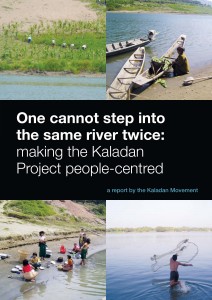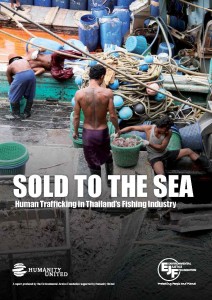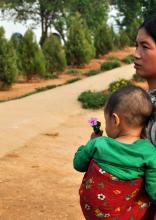Campaign Resources (403 found)
Resolution on the Situation of Rohingya Muslims
The European Parliament, having regard to its previous resolutions on Burma/Myanmar, in particular those of 20 April 2012[1], 13 September 2012[2] and 22 November 2012[3], having regard to its resolution of 23 May 2013 on reinstatement of Myanmar/Burma’s access to generalised tariff preferences[4], having regard to the EU Foreign Affairs Council conclusions of 22 April 2013 on Myanmar/Burma […]
• • •One Cannot Step into the Same River Twice: Making the Kaladan Project People-Centred
 A new report from the Kaladan Movement titled One cannot step into the same river twice: making the Kaladan Project people-centred provides an update on the progress of the Kaladan Project, and assesses the potential Project-related benefits and negative impacts for people living in the project area […]
A new report from the Kaladan Movement titled One cannot step into the same river twice: making the Kaladan Project people-centred provides an update on the progress of the Kaladan Project, and assesses the potential Project-related benefits and negative impacts for people living in the project area […]
Protecting Minority Rights Is Non-Negotiable
In its rush to normalize relations with Myanmar, the international community – particularly the United Nations – must not ignore the increase in abuses being committed against ethnic minorities in Rakhine and Kachin States, and it must take a stronger stance in defense of the human rights of affected populations. Ten months after violence forced them into displacement […]
• • •Presentation on Recent Developments on Myanmar National Human Rights Commission (MNHRC) Complaints Handling, Investigations and Cooperation with the Special Procedures of the United Nations
A presentation by Win Mra on developments with the MNHRC in 2012, as well as how protection works through the MNHRC’s complaints handling mechanism and the difficulties that are impeding the progress in this aspect […]
• • •Sold to the Sea: Human Trafficking in Thailand’s Fishing Industry
 Human trafficking is a global problem. It is estimated that as many as 27 million men, women and children are currently victims of human trafficking around the world.
Human trafficking is a global problem. It is estimated that as many as 27 million men, women and children are currently victims of human trafficking around the world.
Thailand is the 32nd largest economy in the world, with a GDP of $377 billion and a growth rate of 5.5 per cent in 2012.2/3 It also has one of the lowest unemployment rates globally, at 0.5 per cent in December 2012.
Thailand’s economy is heavily reliant on labour-intensive industries. However, growing economic prosperity since the late 1980s has seen a decline in the available Thai workforce needed to meet the labour demand.5 In 2009, Thailand’s Ministry of Labour estimated that an additional 116,000 workers would be needed to address the labour-market imbalance […]
• • •Massacre in Central Burma Muslim Students Terrorized and Killed in Meiktila
This report details the results of a PHR investigation into the March 20 and 21, 2013, attacks on Muslim students, teachers, and residents in the Mingalar Zayyone quarter of Meiktila, a small town in central Burma. A two-person team from PHR conducted 33 interviews about the attacks, which resulted in the deaths of at least 20 children and four teachers […]
• • •Reforming Telecommunications in Burma
In January 2013, the Burmese government announced plans to liberalize the country’s telecommunications sector and invited bids for two nationwide telecommunications licenses.[1] Successful bidders will be allowed to provide a range of services, including mobile and Internet services […]
• • •The Revenue Watch 2013 Resource Governance Index
The Resource Governance Index (RGI) measures the quality of governance in the oil, gas and mining sector of 58 countries. From highly ranked countries like Norway, the United Kingdom and Brazil to lowranking countries like Qatar, Turkmenistan and Myanmar, the Index identifies […]
• • •Access Denied: Land Rights and Ethnic Conflict in Burma
 The reform process in Burma/Myanmar1 by the quasi-civilian government of President Thein Sein has raised hopes that a long overdue solution can be found to more than 60 years of devastating civil war. Burma’s ethnic minority groups have long felt marginalized and discriminated against, resulting in a large number of ethnic armed opposition groups fighting the central government – dominated by the ethnic Burman majority – for ethnic rights and autonomy. The fighting has taken place mostly in Burma’s borderlands where ethnic minorities are most concentrated […]
The reform process in Burma/Myanmar1 by the quasi-civilian government of President Thein Sein has raised hopes that a long overdue solution can be found to more than 60 years of devastating civil war. Burma’s ethnic minority groups have long felt marginalized and discriminated against, resulting in a large number of ethnic armed opposition groups fighting the central government – dominated by the ethnic Burman majority – for ethnic rights and autonomy. The fighting has taken place mostly in Burma’s borderlands where ethnic minorities are most concentrated […]
Update of Human Right Violations by the Burma Army During Offensives in Palaung Areas (March and April 2013)
Since January 2013, Burmese government troops have been carrying out military offensives in Palaung areas against the Shan State Army-North (SSA-N), Kachin Independence Army (KIA) and Ta’ang National Liberation Army (TNLA). The Burmese troops have committed widespread human rights violations during these operations […]
• • •
 All posts
All posts